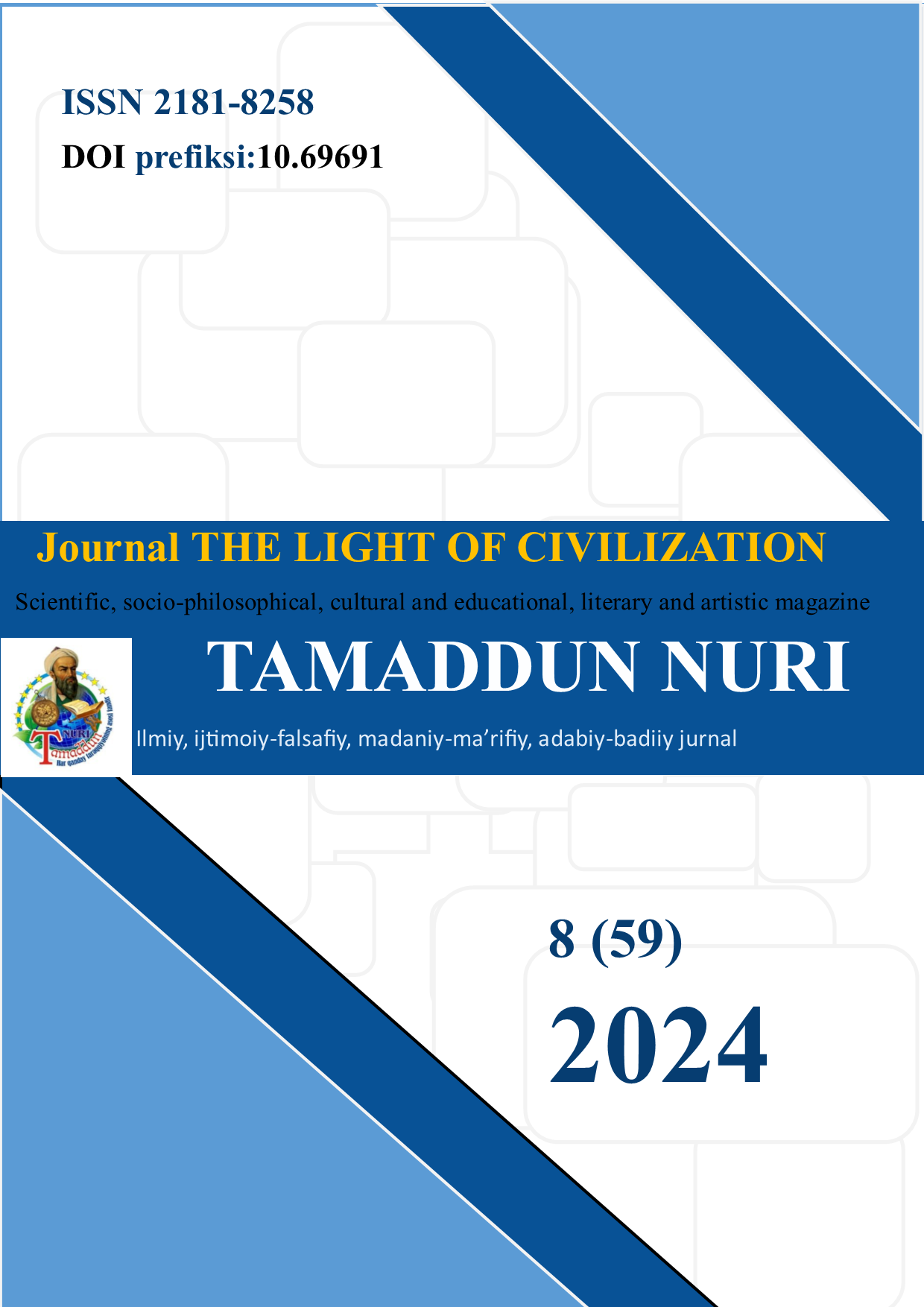PHILOSOPHICAL ANALYSIS OF SOME IMAGES IN FUZULI'S POEMS IN THE CONTEXT OF ASCETICISM
DOI:
https://doi.org/10.69691/x7h3tp53Keywords:
Fuzuli, asceticism, philosophy, mind, aesthetic subject, aesthetic object, aesthetic knowledge, universe, world, human, society, life, destiny, rational knowledge.Abstract
In this philosophical analysis attempt, the nature of the relationship (the act of thinking) between the poems of the wise poet Fuzulî and his mental world will be tried to be explained by the method of philosophical analysis. Our main purpose in doing this is to explain how the aesthetic bond (taking into account internal and external elements) is established between Fuzulî's poetry, an aesthetic object, and the aesthetic subject (Fuzulî) who created it. If it is possible to achieve this, it will be shown that the knowledge of the aesthetic subject (as aesthetic knowledge) will to some extent be free of subjectivity and have an informational value equivalent to rational knowledge.
Fuzulî lived between approximately 1480-1556 and is a well-known figure as a man of letters and poet in the Turkish and Islamic world with his poems. He is one of the groundbreaking artists of Classical Islamic and Turkish Literature, with his knowledge of Arabic and Persian, which he knows well enough to write poetry, as well as his native language, Turkish. According to Fuzûlî, the art of poetry creates a privileged position that offers people the opportunity to rise above the total existence. Although Fuzûlî clearly demonstrates his superiority in the art of poetry in his ghazals, he deserves his fame as a poet with his masnavi named Leyla vü Mecnûn.
References
Əhməd Həmdi Tanpınar, “XIX əsr Türk ədəbiyyatı tarixi”, Haz.: Abdullah Uçman YKY, İstanbul, 2006.
* Əhməd Həmdi Tanpınar, “Ədəbiyyat üzərinə məqalələr”, Haz.: Zeynep Kerman, Dergâh Yay., İst, 1977.
* Aristotel, “Poetika”, Çev.: İsmail Tunalı, Remzi Kiatapevi, İstanbul, 1976, S.1447a.
* Cövdət Qüdrət, “Füzuli”, İnkılap Kitabevi, İstanbul, 1985.
* Erol Güngör, Doktorluq, Dosentlik, Professorluq dissertasiyaları, Yer-Su, 2018.
* Füzuli, “Leyli və Məcnun”, Haz.: Muhammet Nur Doğan, YKY., İstanbul, 2000.
* Hasibe Mazıoğlu, “Füzuli və Türkcə Divanı'ndan seçmələr”, Ank., Kültür Bakanlığı Yay., 1992.
* Həmid Araslı, “Məhəmməd Füzulinin əsərləri”, Şərq-Qərb, Bakı, 2005.
* İbnü’l Emin Mahmud K. İnal, “Son əsr Türk Şairləri”, Milli Eğitim Basımevi, İst., 1988.
* Köprülüzade Mehmed Fuad, Fuzulî Hayatı ve Eseri, Yeni Şark Kütüphanesi, İstanbul, 1924.
* Nitsşe, “Zəşdüşt belə deyirdi”, Çev.: Turan Oflazoğlu, Cem Yayınları, İstanbul, 1991.
* Ü.Aslan-H.Taş-Ö.Zülfe, Tahir Üzgör’e Armağan, “Abdullah Surun “Füzuliyə bir nəzər” məqaləsi, Yayınevi, Ankara, 2018.
* Takiyettin Mengüşoğlu, “Fəlsəfəyə giriş”, Remzi Kitapevi, İstanbul, 1983.
Downloads
Published
Issue
Section
License
Copyright (c) 2024 Journal of Tamaddun Nuri

This work is licensed under a Creative Commons Attribution-NoDerivatives 4.0 International License.



